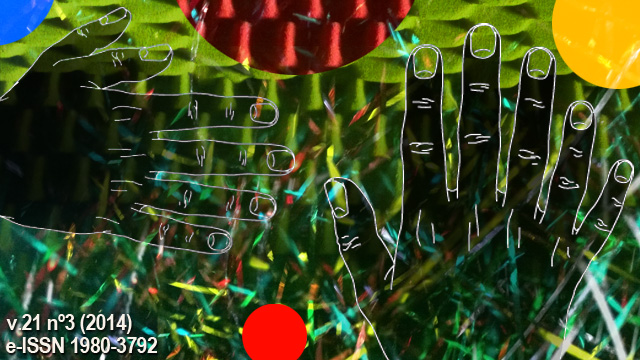Media and Politics: Strategies for building the “symbolic capital” of political
DOI:
https://doi.org/10.15448/1980-3729.2014.3.18431Keywords:
Politics, Ideology, MediaAbstract
This article presents the results of an ample investigation carried with political actors in order to identify their perceptions on media’s importance in the construction of political fact. The adopted method here is John Thompson’s (2011) depth hermeneutics. The body of research is composed by 14 interviews with politicians, distributed throughout the federal, state and municipal spheres: two of them being Senators, 6 ederal congressmen, 4 state congressmen and 2 city counsellors. The party affiliation was so defined: 6 members of the Labour Party (Partido dos Trabalhadores – PT), 2 member of the Progressive Party (Partido Progressista – PP), 2 members of the Socialism and Liberty Party (Partido Socialismo e Liberdade – PSOL), 2 member of the Brazilian Democratic Movement Party (Partido do Movimento Democrático Brasileiro – PMDB), one member of the Brazilian Labour Party (Partido Trabalhista Brasileiro – PTB) and one member of the Brazilian Socialist Party (Partido Socialista Brasileiro – PSB). The narratives presented here through these interviews show deals and the practices not directly evident for voters and Brazilian citizens. We endeavour to reveal how the means of communication reaffirm their capacities of creating and/or destroying political careers. The fundamental conclusion presented here is that that are orchestrated dissimulation that objectify the upkeep of asymmetrical relations of power and perpetuation of hegemonic ideologies.
Downloads
References
ARENDT, Hannah. O que é Política? Fragmentos das obras póstumas compilados por Ursula Ludz. Tradução de Reinaldo Guarany. Rio de Janeiro: Bertrand Brasil, 2012.
ARISTÓTELES. A Política. Tradução de Nestor Silveira Chaves. Clássicos de Bolso Ediouro.
BUCCI, Eugênio. TV, Mídia e Espaço Público Mundial na Guerra dos EUA contra Bin Laden. In: BARROS FILHO, Clóvis (Org.). Comunicação na pólis – ensaios sobre mídia. Petrópolis: Vozes, 2002.
GUARESCHI, Pedrinho A. (Org.). A representação social da política. In: Os construtores da informação. Petrópolis: Vozes, 2003.
LEAL FILHO, Laurindo Lalo. A melhor TV do mundo. O modelo britânico de televisão. São Paulo: Summus, 1997.
MOSCOVICI, Serge. A invenção da sociedade: sociologia e psicologia. Tradução de Maria Ferreira. Petropólis: Vozes, 2011.
RANCIÉRE, Jacques. Os paradoxos da arte política. Paris: Ed. WMT; Rio de Janeiro: Martins Fontes, 2008.
REIS, Heitor. A Contribuição da Psicologia para a mídia da resistência. In: Mídia e Psicologia: produção de subjetividade e coletividade. Brasília: Conselho Federal de Psicologia, 2009.
RODRIGUES, C. Democracia: cinco princípios e um fim. São Paulo: Moderna, 1996.
THOMPSON, John B. A mídia e a modernidade: uma teoria social da mídia. Tradução de Wagner de Oliveira Brandão. Petropólis: Vozes, 2012.
______. Ideologia e Cultura Moderna: teoria social crítica na era dos meios de comunicação de massa. Tradução do Grupo de Estudos do Instituto de Psicologia da PUCRS. Petrópolis: Vozes, 2011.
______. A Nova Visibilidade. Tradução: Andrea Limberto. Revista Matrizes, n. 2, p. 15-38, abr. 2008.
Downloads
Published
How to Cite
Issue
Section
License
Copyright
The submission of originals to Revista Famecos implies the transfer by the authors of the right for publication. Authors retain copyright and grant the journal right of first publication. If the authors wish to include the same data into another publication, they must cite Revista Famecos as the site of original publication.
Creative Commons License
Except where otherwise specified, material published in this journal is licensed under a Creative Commons Attribution 4.0 International license, which allows unrestricted use, distribution and reproduction in any medium, provided the original publication is correctly cited.






